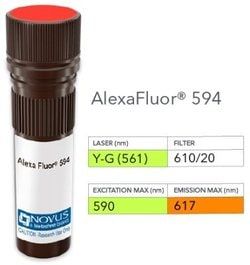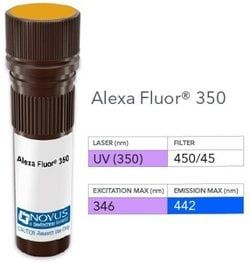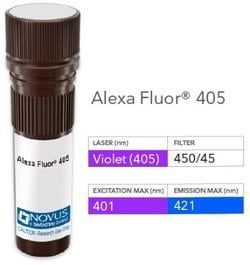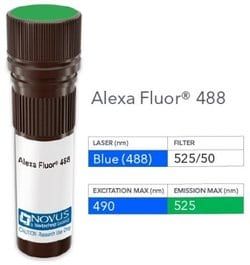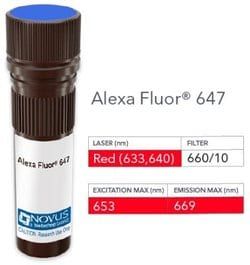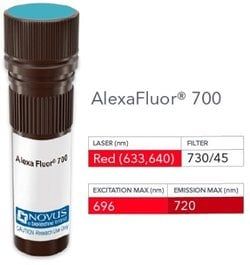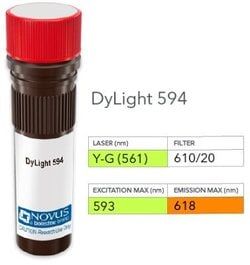Tryptase alpha/beta 1 Antibody (TPSAB1/1961), DyLight 594, Novus Biologicals™
Manufacturer: Novus Biologicals
Select a Size
| Pack Size | SKU | Availability | Price |
|---|---|---|---|
| Each of 1 | NB008885-Each-of-1 | In Stock | ₹ 57,494.00 |
NB008885 - Each of 1
In Stock
Quantity
1
Base Price: ₹ 57,494.00
GST (18%): ₹ 10,348.92
Total Price: ₹ 67,842.92
Antigen
Tryptase alpha/beta 1
Classification
Monoclonal
Conjugate
DyLight 594
Formulation
50mM Sodium Borate with 0.05% Sodium Azide
Gene Alias
EC:3.4.21.59, epididymis secretory sperm binding protein, mast cell alpha II tryptase, mast cell beta I tryptase, mast cell tryptase, TPS1, TPS2, TPSB1, TPSB2, tryptase alpha II, Tryptase alpha-1, tryptase beta I, tryptase beta-1, Tryptase beta-2, Tryptase I, tryptase II, tryptase-1, tryptase-2, tryptase-I, tryptase-III
Host Species
Mouse
Purification Method
Protein A or G purified
Regulatory Status
RUO
Primary or Secondary
Primary
Target Species
Human
Isotype
IgG1 κ
Applications
Immunohistochemistry, Immunohistochemistry (Paraffin)
Clone
TPSAB1/1961
Dilution
Immunohistochemistry, Immunohistochemistry-Paraffin
Gene Accession No.
Q15661
Gene Symbols
TPSAB1
Immunogen
Recombinant human Tryptase alpha/TPS1 protein fragment (around aa 115-233) (Exact sequence is proprietary) (Uniprot: Q15661)
Quantity
0.1 mL
Research Discipline
Immunology, metabolism
Test Specificity
This antibody reacts with mast cells distributed in skin, synovium, lung, and heart. This antibody does not bind with any other cell type. Human mast cell tryptase is considered to be an important marker of mast cell activation and is an important mediator of inflammation. Mastocytosis is a term collectively used for a group of disorders in which there is abnormal accumulation of mast cells in one or multiple organs. Anti-tryptase, combined with anti-CD2, anti-CD25, and anti-CD117, can be useful in identifying reactive mast cell hyperplasia, myelogenous neoplasms, mast cell leukemia, and mastocytosis. Due to sequence identity this antibody will likely cross react with tryptase beta 2.
Content And Storage
Store at 4°C in the dark.
Related Products
Description
- Tryptase alpha/beta 1 Monoclonal antibody specifically detects Tryptase alpha/beta 1 in Human samples
- It is validated for Immunohistochemistry, Immunohistochemistry (Paraffin).
